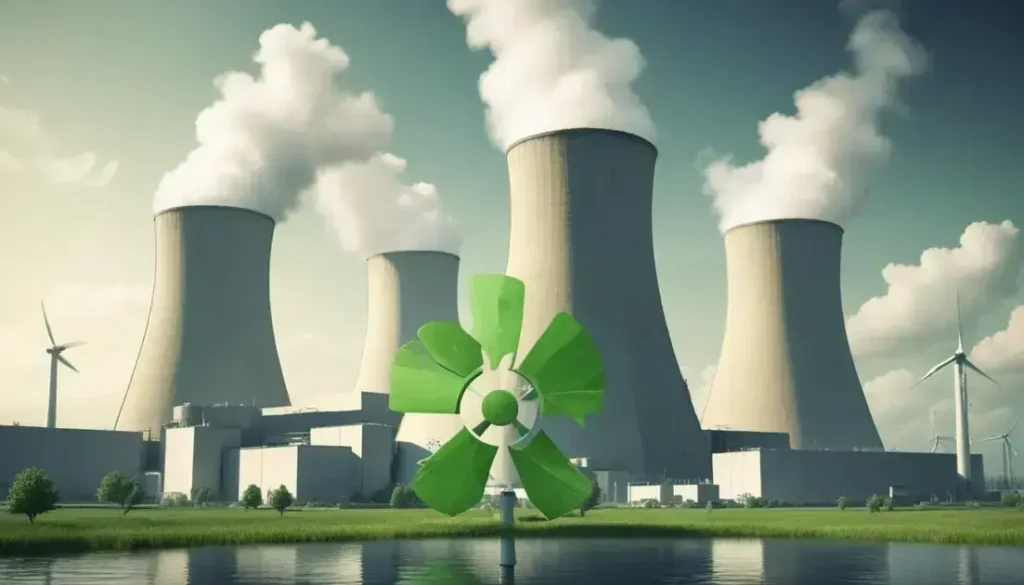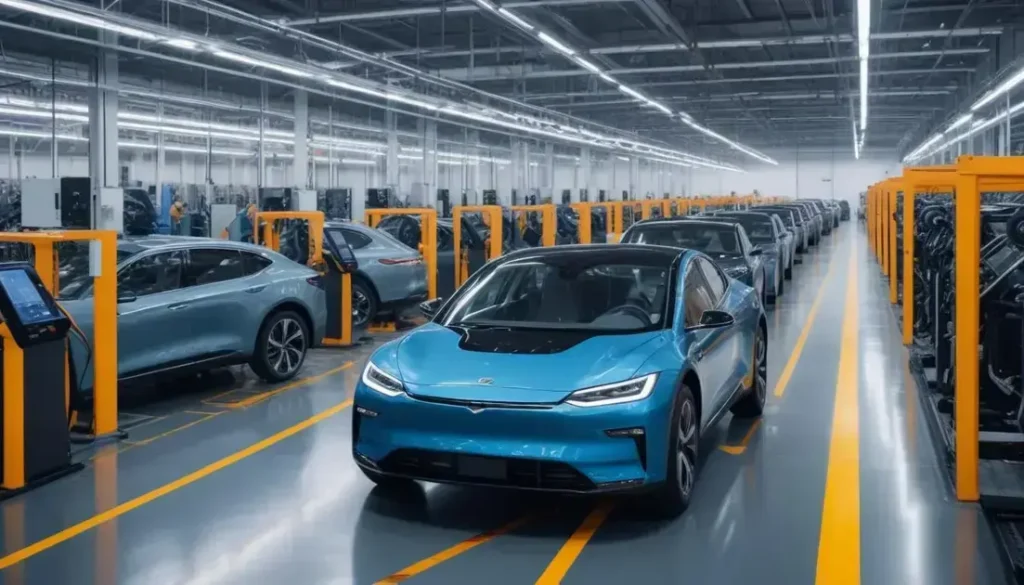Nuclear energy is crucial for the UK’s transition to carbon-free power, providing a reliable energy source that complements renewable alternatives and supports the nation’s goal of achieving net-zero emissions.
In today’s rapidly changing energy landscape, nuclear energy is stepping into the spotlight, especially with Amazon’s recent significant investments. But what does this mean for businesses across the UK?
The impact of Amazon’s nuclear energy investment
The impact of Amazon’s investment in nuclear energy is set to reshape how the UK approaches its energy needs. As the country aims to reduce carbon emissions and transition towards sustainable power, this investment signals a significant shift. Nuclear power offers a reliable source of energy, capable of providing consistent output unlike some renewable sources.
Amazon’s decision to invest in this sector not only highlights the company’s commitment to environmental sustainability but also sets a precedent for other businesses. By championing carbon-free power, Amazon is encouraging firms to rethink their energy strategies and explore cleaner alternatives.
Furthermore, this investment opens avenues for technological advancements in the nuclear field. Innovations could lead to improved safety measures and efficiency, enticing more companies to participate. The UK is well-positioned to benefit from such developments, as it combines regulatory support with a growing appetite for sustainable solutions.
As businesses align their goals with governmental policies aimed at combating climate change, the integration of nuclear energy becomes increasingly essential. Understanding the implications of this shift will be crucial for UK firms looking to thrive in a future where clean energy is paramount.
Future of carbon-free power in the UK
The future of carbon-free power in the UK is poised for transformation, driven by advancements in technology and changing governmental policies. As the UK pushes towards its net-zero targets, the integration of various renewable energy sources becomes paramount. Wind, solar, and nuclear energy are leading the charge, each playing a vital role in achieving carbon neutrality.
Offshore wind farms have emerged as a significant contributor, utilising the UK’s extensive coastlines to harness powerful winds. This technology not only provides substantial energy but also creates jobs and stimulates local economies. Alongside wind, solar energy continues to gain traction, with more households and businesses investing in solar panels.
Nuclear power remains a critical player in this landscape, offering a stable and large-scale energy source that complements intermittent renewables. The introduction of small modular reactors (SMRs) presents an innovative way to enhance energy security while minimising environmental impact.
As these energy sources converge, the challenges surrounding energy storage and distribution must be addressed. Innovations in battery technology and smart grids will be essential to ensure a reliable supply of carbon-free power. The UK’s commitment to investing in these technologies will shape a sustainable energy future, positioning the nation as a leader in the global energy transition.
In conclusion: The path to a sustainable energy future
As the UK moves towards a greener future, the focus on carbon-free power is more important than ever. Investments in renewable sources like wind, solar, and nuclear energy can significantly reduce emissions and help meet climate goals.
Each energy source plays a unique role in creating a balanced and reliable energy mix. Embracing these technologies not only benefits the environment but also strengthens the economy through job creation and innovation.
Looking ahead, addressing challenges related to energy storage and distribution will be crucial. With ongoing advancements, the UK can position itself as a leader in sustainable energy, paving the way for a cleaner and more prosperous future.
Frequently Asked Questions
What is the role of nuclear energy in the UK’s carbon-free future?
Nuclear energy provides a stable and large-scale source of power that complements intermittent renewable sources like wind and solar, helping the UK achieve its carbon neutrality goals.
How does investing in renewable energy benefit the economy?
Investing in renewable energy creates jobs, stimulates local economies, and fosters innovation, all while contributing to a sustainable future.
What challenges does the UK face in transitioning to carbon-free power?
Key challenges include energy storage, distribution, and ensuring a reliable supply of energy from diverse sources.
How are wind and solar power contributing to the UK’s energy mix?
Wind and solar power are essential in reducing emissions and providing clean energy, with offshore wind farms and solar panels becoming increasingly popular across the UK.
What advancements are being made in energy storage technology?
Innovations in battery technology and smart grids are critical for improving energy storage and ensuring reliable access to clean power.
Why is it important for businesses to adopt sustainable energy practices?
Adopting sustainable energy practices can lead to cost savings, improved reputation, and compliance with regulations, all of which can enhance competitiveness in the market.


